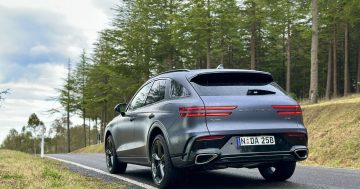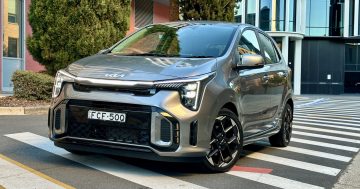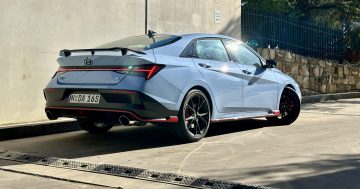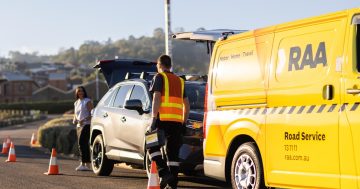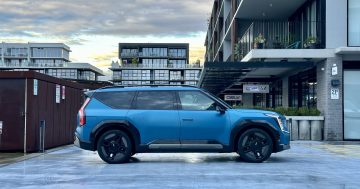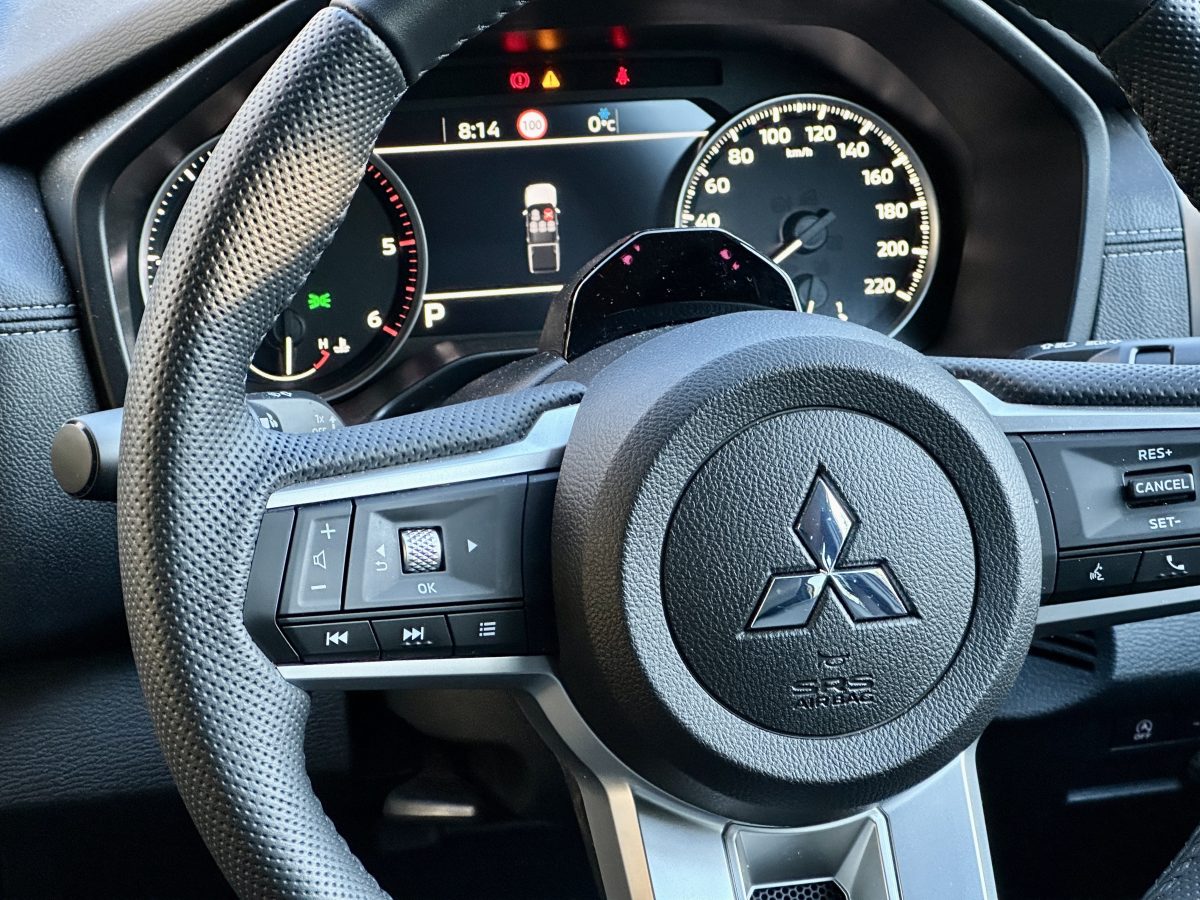
That little black box atop the steering wheel is always watching. Photo: James Coleman.
You can barely leave the driveway in a modern car without receiving an earful from the electronic nanny on board.
Under the auspices of safety, a number of Advanced Driver Assistance Systems (ADAS) have crept into your car’s cockpit in recent years, from lane-keeping assistance and high speed alert to reverse park assist and driver monitoring systems.
They’re all lying in wait for the moment you touch the white line or exceed the speed limit – or simply yawn – so they can blare at you.
Or, as we wrote last October, in a review of the Hyundai IONIQ 6, “the modern car is laden with so much tech, the first five minutes of your journey must be spent going around and switching it all off”.
“Forget to do this, and the constant bonging … will descend as one on your cognitive faculties and make you want to drive the damn thing into the nearest waterway.”
Turns out we’re not alone. The situation has reached the point many consumers have had enough.
Mitsubishi Motors Australia Limited (MMAL) have released a “technical update” to its new Triton ute.
We’ve tested this car recently and concluded it’s a very solid option for those after a go-anywhere, do-anything ute for work or play.
Except for one thing. Its driver monitoring system (DMS).
A little camera mounted atop the steering wheel is constantly ‘watching’ you to make sure you’re paying attention to the road ahead.
But dare check your side windows for passing traffic at an intersection, or your mirror for what’s behind you, for too long, and there’ll be a loud beep and a message on the screen in front of you, telling you to pay attention.
At night, when the driver’s face is often hidden in the dark, it would often sound the same alarm even if you were “paying attention”.

Existing Mitsubishi Triton owners can have the update applied by visiting their local dealer. Photo: James Coleman.
The software update, applied to all new Triton models sold and able to be retrofitted to existing ones, is said to make the system less sensitive to “certain natural movements”.
“Since the all-new Triton’s launch in February this year, MMAL has been actively seeking feedback across several key stakeholders,” MMAL CEO Shaun Westcott said.
“This includes dealers and media, but also – crucially – all new Triton customers.
“In collating that feedback, we have leveraged our core market relationship with Mitsubishi Motors Corporation to identify areas of potential future improvement that we believe can maximise our customers’ ownership experience.”
The update will be gradually rolled out across all existing vehicles as they come into dealers for services.
“Servicing dealers can also update the software outside the regular service schedule, should the customer request,” MMAL adds.
Hyundai and Kia have also recently admitted some of their technology can be just as infuriating.
Their ‘Intelligent Speed Limit Assist’ system uses GPS data and a windscreen-mounted camera to work out the speed limit for any given stretch of road.
An alert will sound each time the limit changes, and again – four times in a row – if you exceed the limit by 2 km/h.
You’re already able to turn off the equally noisy lane-keeping assistance via a button on the steering wheel but, starting with the updated Hyundai Tucson, you’ll be able to silence these speed alerts by holding down the mute button for two seconds in all new models.
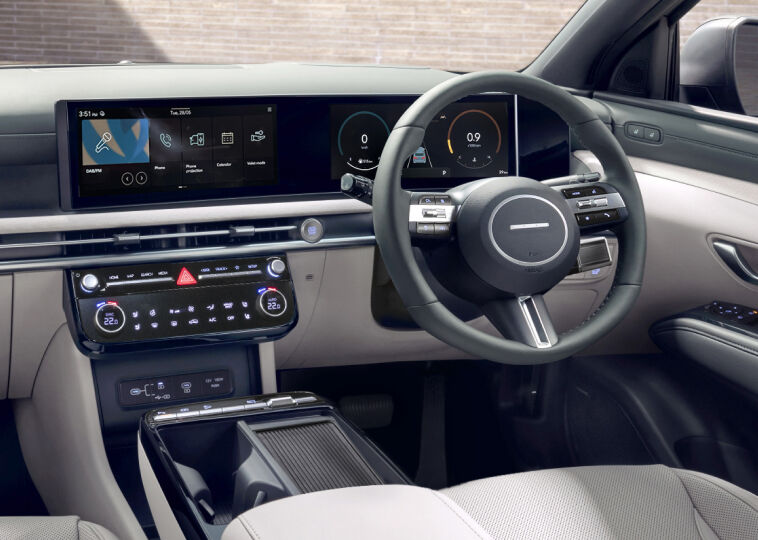
Inside the new Hyundai Tucson. Photo: Hyundai Australia.
You still have to perform the routine every time you start the car, but at least it saves a time-consuming hunt through layers of digital menus.
“We can expect that feature to be rolled out on future Hyundai models,” Hyundai Australia product planning manager Sam Dabestani said.
“In terms of existing models, which ones and how it is applied, that’s still to be worked out.”
Kia Australia has confirmed the mute button will also appear in future Kia models, even if they’re yet to confirm the debut model.
ADAS isn’t required by law in Australia, but they are certainly encouraged by the Australasian New Car Assessment Program (ANCAP) which has assessment area for “safety assist” as part of the crash test process.
Cars can receive a maximum score of 18/100 for having features like driver monitoring, speed assistance, and reverse assistance systems.
Original Article published by James Coleman on Riotact.



